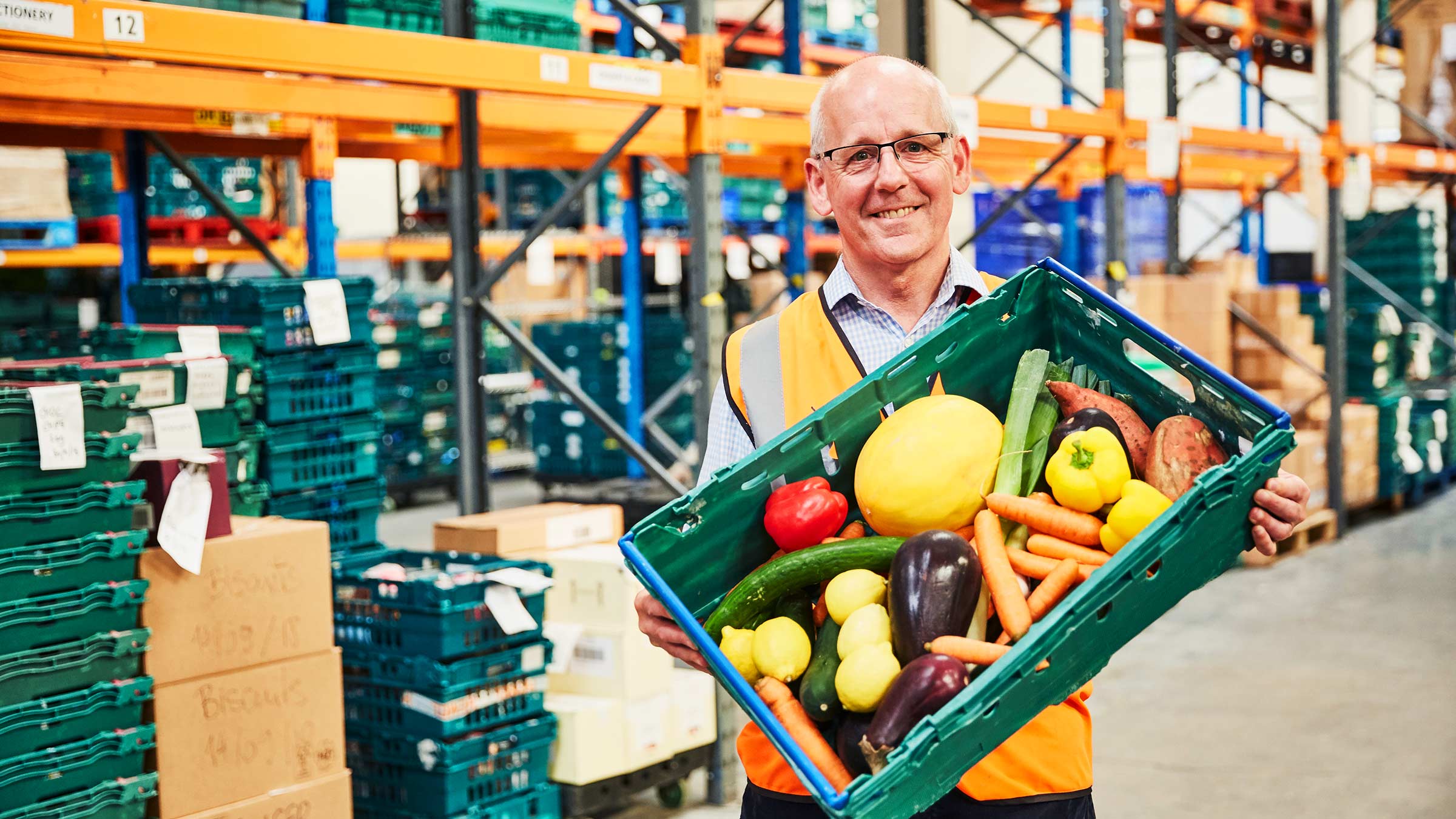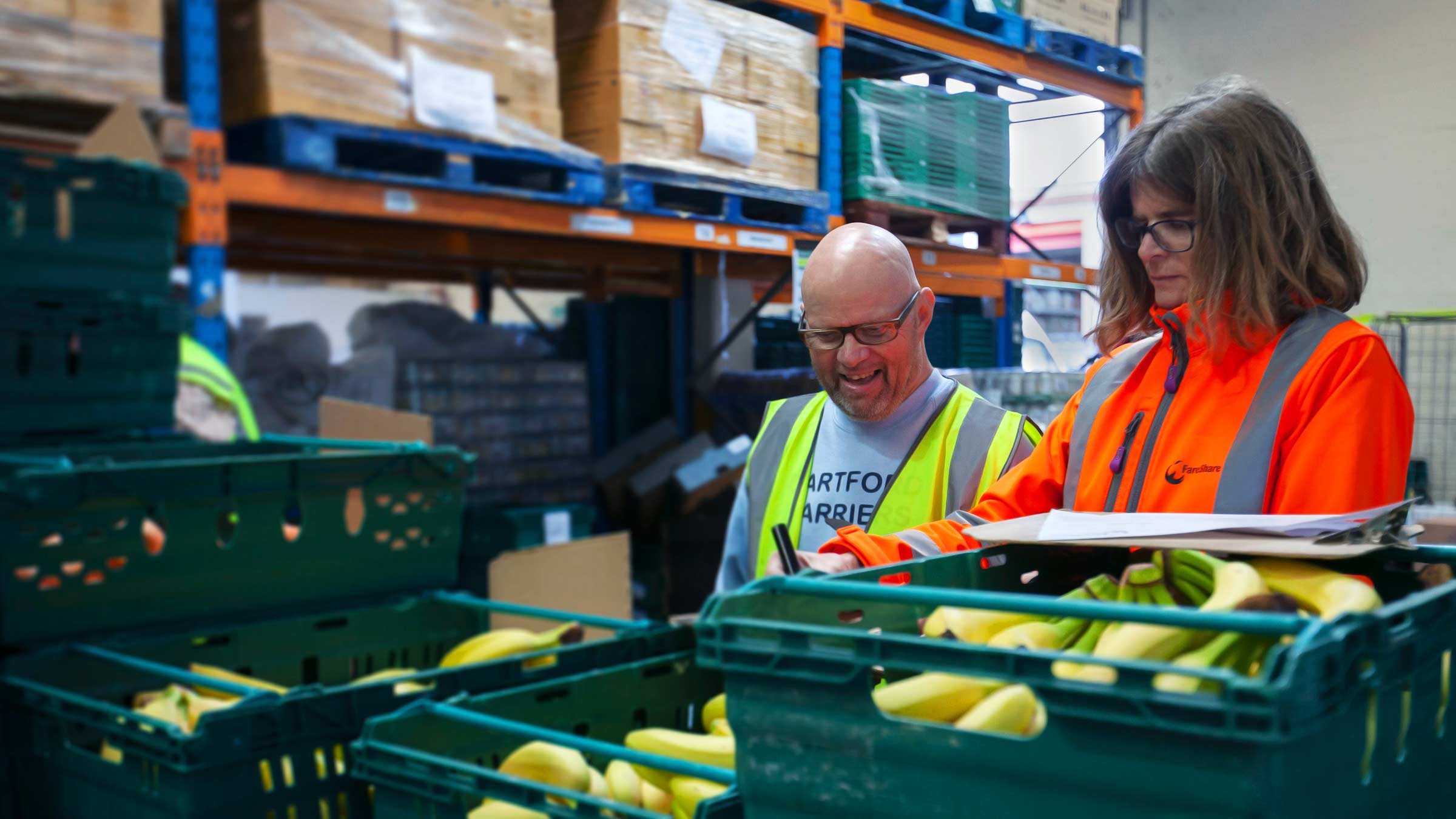2019 was the year that sustainability became the biggest item on the agenda for consumer-facing businesses. Thanks to the rising influence of climate activists, the environment’s presence in the political sphere and a growing customer desire to make eco-friendly purchasing decisions, many players in the consumer sector have put sustainability at the forefront of their strategies.
However, as we enter 2020 and the impact of climate change becomes increasingly more apparent – you’ll have seen the devastating scenes coming from the Australian wildfires – it is clear that there is still a long way to go.
One man who understands this more than most is Lindsay Boswell. Lindsay is chief executive of FareShare, the UK-based charity tackling one of the biggest sustainability issues of our time: food waste. FareShare exists to marry two different problems, simultaneously fighting food waste and driving immeasurable amounts of social good. They are, as Lindsay puts it, “an environmental organisation that provides a social solution.”
By diverting £65m worth of surplus food to more than 11,000 front-line charities every year, FareShare provides a staggering one million meals to society’s most vulnerable people each week. It’s an indicator of the enormity of the food waste problem that despite these impressive figures, FareShare only collects 7% of the surplus food fit for human consumption. To do this, the team works closely with producers, manufacturers and retailers, identifying where surplus exists and providing logistical solutions to divert it, and commercial solutions to avoid it in the first place. As a result, FareShare is fundamentally changing the way the grocery sector thinks about food waste.
I caught up with Lindsay, to discuss the fantastic work his organisation is doing in our industry. Lindsay has been CEO of FareShare for nearly a decade, and has been witness to a positive cultural shift. “When I first came in I’d have to start any conversation by explaining to people what the food waste problem is and that there are hungry people out there,” he tells me, “but now it’s a little different – it’s more about getting manufacturers and retailers to recognise the surplus that exists in their own production.”

Despite the UK food industry being one of the most efficient on the planet – and exceptionally good at meeting consumer demand – there will always be small margins of overperformance. “Leaders in grocery fail to see their surplus or why it’s an issue,” explains Lindsay, “because we’re talking about very small percentages of very large numbers. 0.04% of over-performance may easily go unnoticed in factory, but could equate to a huge amount of social difference when you realise that that 0.04% means one million glasses of juice for those not getting the necessary nutrition elsewhere.”
“We’re greedy… we like to squeeze the most social goodness out of the food as we possibly can.”
Lindsay is passionate about diverting food to places where it has the most impact. “We’re greedy,” he says, “we like to squeeze the most social goodness out of the food as we possibly can.” Indeed, what sets FareShare apart from other charities is its recognition that food provides more than just nutritional value. While distributing surplus to foodbanks, schools and prisons would feed the most people, Lindsay’s charity takes a more nuanced approach.
“Food has the power to connect and convene,” Lindsay says, “and if we divert our surplus to organisations which are addressing the causes of poverty and vulnerability, then it can go much further and have a much deeper impact upon the communities we work within.” As such, every item diverted by FareShare is donated to charities – homeless shelters, rehabilitations centres, mental health clinics, children’s clubs, to name a few – that cook and serve homecooked meals to the neediest in society.
We discuss this idea in the context of Christmas and the millions of people who gather around a meal every year. “What people remember from that day isn’t the food itself… but the conversations that happen above the plate. The same can be said of a rehabilitation centre. The catalyst is a homecooked meal providing the chance for conversation – the magic is the work those organisations do.”
“The catalyst is a homecooked meal providing the chance for conversation – the magic is the work those organisations do.”
FareShare’s impact on communities cannot go understated – but Lindsay is keen to establish that his organisation is equally committed to finding commercial solutions for companies’ surpluses that will drive up their bottom line. “Every business we have worked with has reduced its food waste – not just by getting rid of surplus but by identifying the problem and eradicating it,” Lindsay tells me. “While this often means we have to get a new supplier, avoiding food waste is absolutely core to our mission.”
Lindsay speaks passionately about the battle against food waste – but also about what FareShare has done for the grocery sector as a whole. In a highly competitive landscape, the charity is bringing businesses together, encouraging open conversation and establishing that sustainability shouldn’t be a competitive area. “One of my proudest moments was an event we held around leadership,” Lindsay says. “Seeing the supply chain directors of each of the big four agreeing with each other and finishing each other’s sentences was fantastic.” He is, as he puts aptly, “allowing competitors to find common ground in common good.”
“Seeing the supply chain directors of each of the big four agreeing with each other and finishing each other’s sentences was fantastic. We are allowing competitors to find common ground in common good.”
What does the future hold for FareShare? Lindsay’s aim is to continue to capture as much surplus food as possible. “We want to collect more than our 7%. Through more retail partners and real strategic step changes – such as government intervention – we can truly maximise on the opportunity at hand.”
It is inspiring to hear how FareShare is changing the conversation on food waste in grocery. Lindsay rebuffs the idea that the surplus issue will be solved by a single organisation. It is, we agree, the culture that needs to change. That being said, I can’t help thinking that if one were to identify one organisation making the most headway in the battle against food waste… it wouldn’t be hard to know where to look.
If you feel your company could partner with FareShare, or you have a team of people who would be interested in getting involved to volunteer, then please get in touch.









